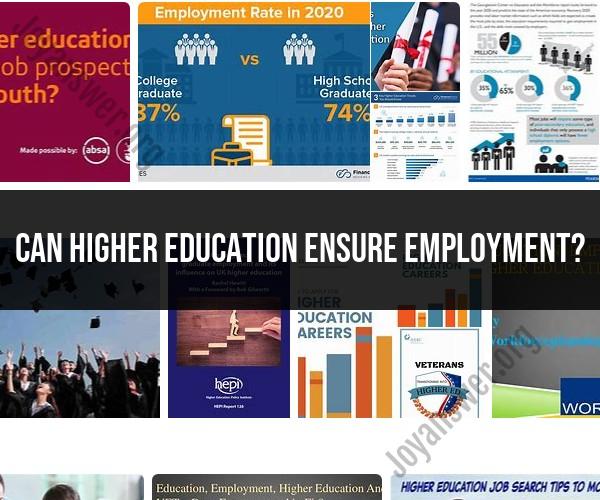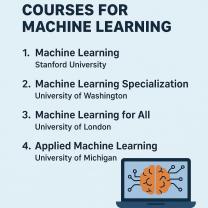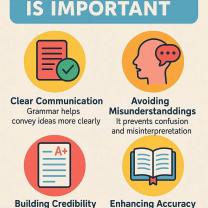Can higher education ensure employment?
Higher education plays a significant role in enhancing employment prospects for individuals, but it cannot guarantee employment on its own. The relationship between higher education and employment is multifaceted and influenced by various factors. Here's a closer look at how higher education contributes to employment prospects:
1. Skill Development: Higher education institutions provide students with the opportunity to acquire specialized knowledge and skills in various fields. These skills can make individuals more competitive in the job market and qualify them for specific roles.
2. Networking: Higher education often facilitates networking opportunities. Students can connect with professors, peers, and professionals in their field, which can lead to job referrals, mentorship, and valuable connections.
3. Credentials: Many jobs require specific educational qualifications. Higher education credentials, such as degrees and certifications, are often prerequisites for certain professions. Without the necessary credentials, individuals may be ineligible for specific job opportunities.
4. Critical Thinking and Problem-Solving: Higher education promotes critical thinking, problem-solving, and analytical skills. These skills are highly valued by employers across various industries, as they enable employees to adapt to new challenges and contribute to the organization's success.
5. Research and Innovation: Higher education institutions often engage in research and innovation activities. Graduates who have been exposed to research experiences may bring fresh perspectives and innovative ideas to the workplace.
6. Soft Skills: In addition to technical skills, higher education can also develop soft skills such as communication, teamwork, time management, and adaptability. These skills are essential in many professional settings and can enhance employability.
7. Career Services: Many higher education institutions offer career counseling, job placement services, and internship programs that can help students transition into the workforce more effectively.
While higher education provides valuable advantages for employment prospects, it's important to recognize that several factors influence an individual's employability:
1. Economic Conditions: The state of the job market, economic trends, and industry-specific conditions can significantly impact employment prospects. During economic downturns, job opportunities may be limited even for highly educated individuals.
2. Field of Study: The demand for specific fields of study may fluctuate. Some industries may have a high demand for professionals with certain degrees, while others may have oversaturated markets.
3. Experience and Internships: Practical experience gained through internships, co-op programs, or part-time jobs can be just as crucial as education. Employers often seek candidates with a combination of education and relevant experience.
4. Geographic Location: Job prospects can vary based on geographic location. Some regions have a higher demand for certain skills and professions, while others may have limited opportunities.
5. Networking and Soft Skills: Effective networking, soft skills, and a strong job search strategy are essential for finding employment.
In conclusion, while higher education can significantly enhance employment prospects by providing valuable skills, credentials, and connections, it is not a guarantee of employment. The job market is influenced by a complex interplay of factors, and individual efforts, adaptability, and circumstances also play a crucial role in securing employment. Successful career development often involves a combination of education, skills development, practical experience, and effective job search strategies.













